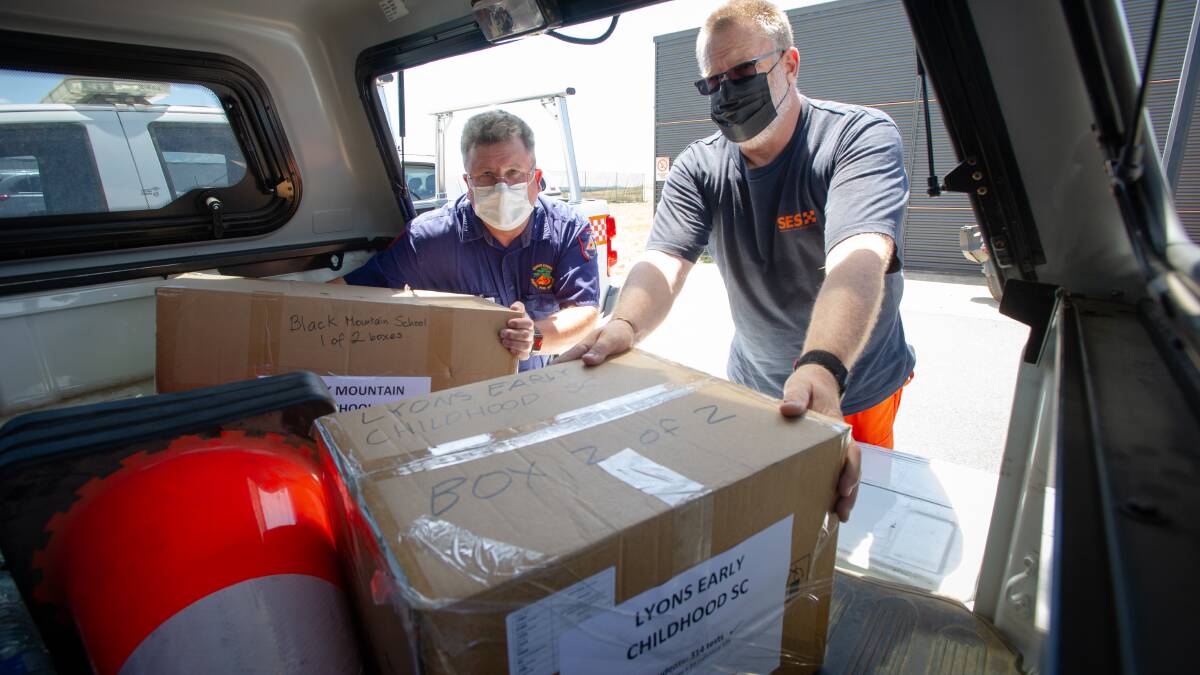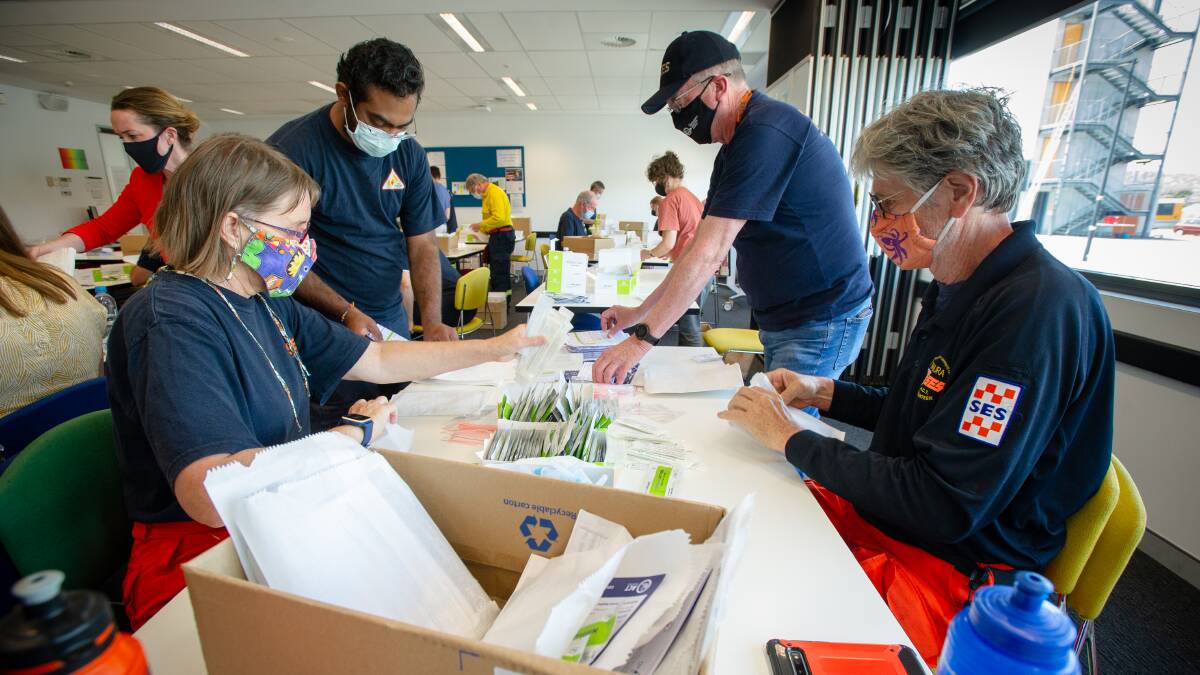The return to school is set to uncover a spike in asymptomatic COVID-19 cases, but ACT authorities are confident the Omicron peak has passed.
It has been more than a week since the territory recorded a daily COVID case tally of more than 1000, with the seven day rolling average down to 804.
The test positivity rate has also fallen to one in six, down from one in three at the peak of the outbreak.
But with more than 200,000 tests a week set to be distributed to all school staff and students over the coming month, the unprecedented monitoring of the virus is set to drive a surge in asymptomatic cases.
Chief Minister Andrew Barr said potentially eight times more tests will be undertaken.
"This will provide a significantly higher level of surveillance," Mr Barr said in a statement.
But Mr Barr warned it would still be several weeks before rapid antigen test supply exceeds demand, based on advice from retailers.
There were 884 new COVID-19 cases reported in the ACT on Thursday. There were 73 people with COVID-19 in Canberra hospitals, with four in intensive care and one being ventilated.
Mr Barr said about half of the patients in Canberra hospitals who were COVID-positive were in hospital for a reason other than the virus.

He said patient numbers had stabilised and modelling from Canberra Health Services indicated the territory had reached its peak and hospitalisations should decline.
"In recent days, COVID-19-specific admissions have stabilised at three to four per day," Mr Barr said.
"It remains a consistent trend that those patients requiring an ICU admission, and mechanical ventilation, are largely unvaccinated."
The news came as staff and volunteers from the ACT's Emergency Services Agency began the colossal task of delivering 1 million rapid antigen test kits to Canberra schools over the next month.

ACT Emergency Services Agency commissioner Georgeina Whelan said about 250,000 tests a week would need to be delivered over the next four to six weeks.
"This is a mammoth effort with hundreds of thousands of tests being brought down from Sydney into Canberra [and] then broken down and delivered here to the ESA," Commissioner Whelan said.
Commissioner Whelan said there would be three shifts a day and each shift would have about 50 staff and volunteers working to deliver tests seven days a week.
Specialist schools and early childhood settings will be receiving the tests first, followed by primary schools, high schools and colleges.
Under the ACT's return to school plan rapid antigen tests will be distributed to staff and students. Each person will receive two tests a week for the first four weeks of term one.
ACT Education Minister Yvette Berry revealed the tests being distributed will be saliva-based, not nasal swabs.
"This will make it much easier for parents, particularly of young children or children with disabilities or additional needs to be able to conduct these test themselves," Ms Berry said.
Not all schools will receive rapid antigen tests before the first day of school, which has prompted concerns from the education union about a wave of infections.
While it is recommended that ACT school students and staff take two rapid antigen tests a week for surveillance purposes, the tests are not compulsory.
Supply woes have plagued Canberra over recent weeks. Last week only 4 per cent of the ordered kits had arrived in the territory.
However, about 500,000 tests ordered by the ACT government are expected to arrive this week.
About 2.5 million are expected in the ACT throughout February.


.png?w=600)




